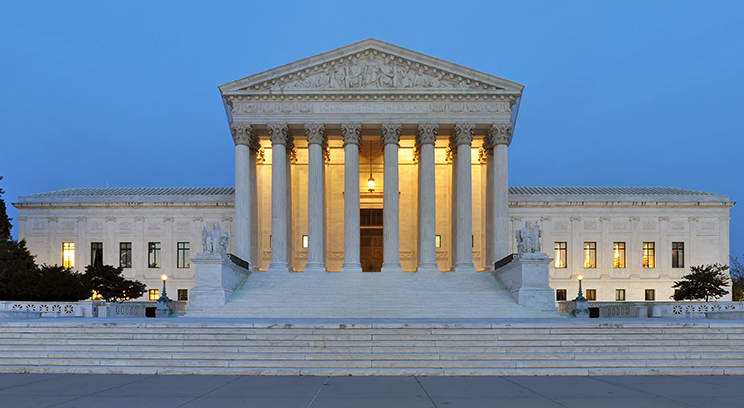The U.S. Supreme Court ruled June 18, in Reed v. Town of Gilbert, that a church's free speech rights were violated by an Arizona town's ordinance that severely restricted the church’s ability to display temporary signs announcing and providing information about its Sunday worship services. This position was argued by an amicus curiae brief filed on the case by the University of St. Thomas School of Law Religious Liberty Appellate Clinic.
The professor- and student-written brief, filed on behalf of nine religious and civil rights groups, argued that the ordinance discriminated against the church's signs, and – by treating signs announcing meetings as less worthy of protection – violated the church's right to freedom of assembly, a distinct and important First Amendment right. The Court held that the ordinance was subject to strict constitutional scrutiny because it imposed more severe restrictions on roadside signs announcing events, such as the church's worship services, than on signs setting forth messages that the town deemed "political" or "ideological."
"The Supreme Court confirmed that there is no constitutional basis for treating a sign announcing a noncommercial meeting – such as a religious worship service, a core First Amendment activity – worse than other sign messages," said Professor Thomas Berg, director of the UST Religious Liberty Appellate Clinic.
Berg and Michael Blissenbach, J.D. ‘15, were the principal co-authors of the amicus brief.
The Religious Liberty Appellate Clinic offers four to six law students each year the opportunity to draft briefs in important religious liberty cases, typically on behalf of national civil liberties and religious organizations filing as amicus curiae. The clinic gives students an intensive experience in formulating, writing and refining appellate arguments, with review by experienced advocates, and in the strategy of framing arguments by amici, who typically present distinctive information or issues that may benefit the judges deciding the case.
“Writing the brief with Professor Berg and Christian Legal Society attorney Kim Colby was one of the most rigorous and rewarding experiences I have had, and gave me firsthand experience at doing the sort of work that religious liberty attorneys do on a regular basis,” Blissenbach said. “This experience has deepened my desire to work to protect the rights of individuals and organizations to live their lives in accordance with the dictates of their deeply held religious beliefs.”
Read the brief here.







